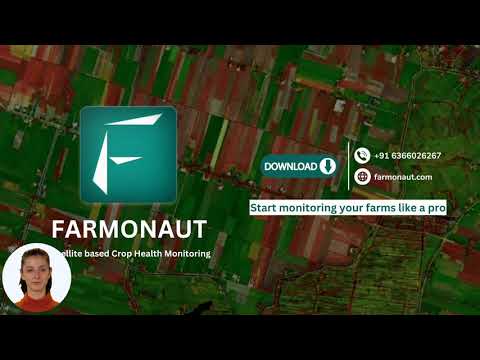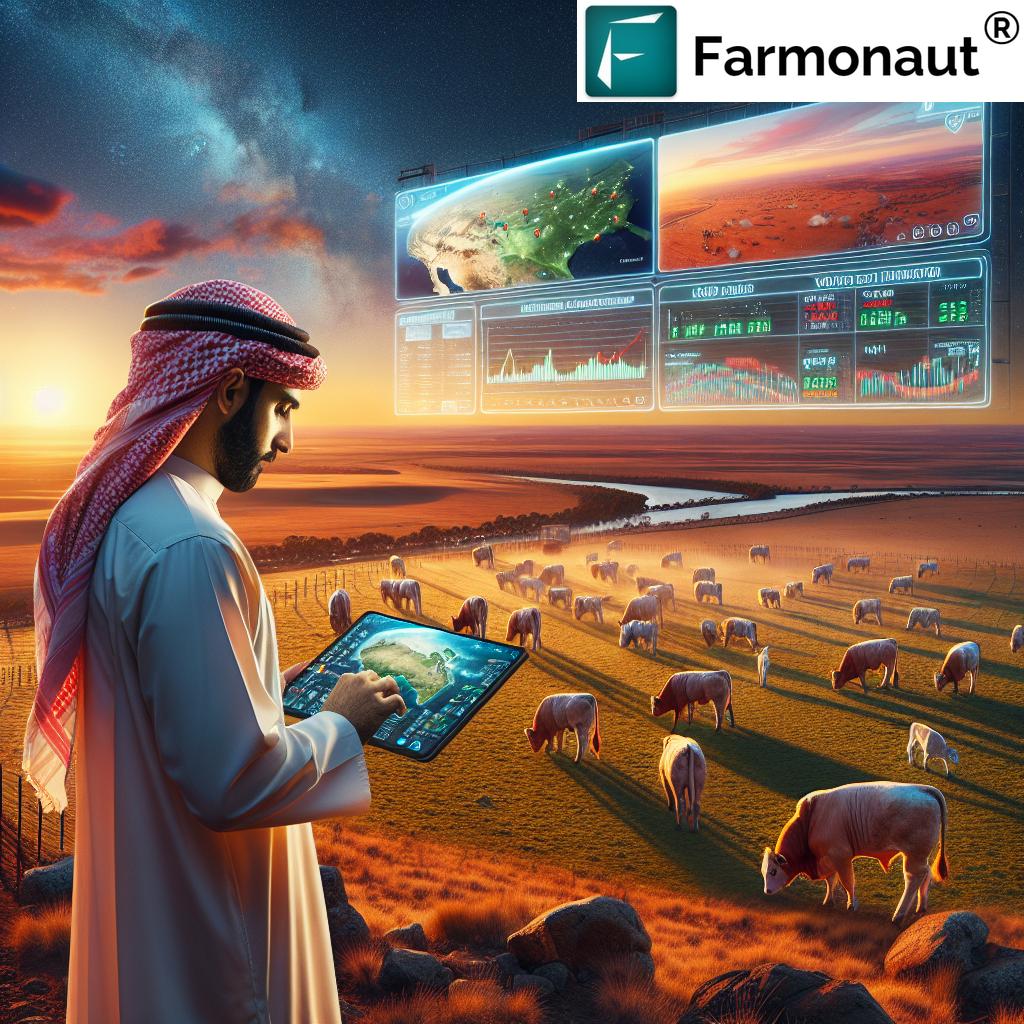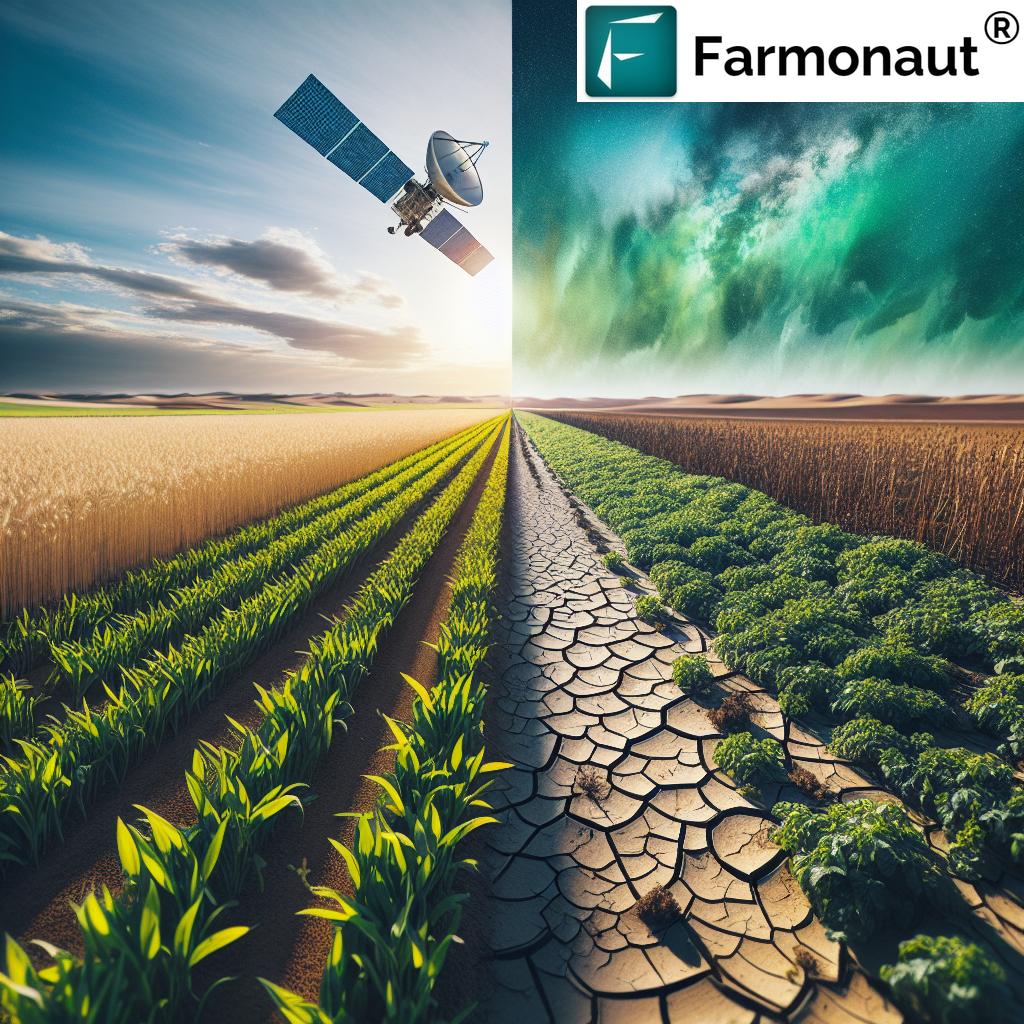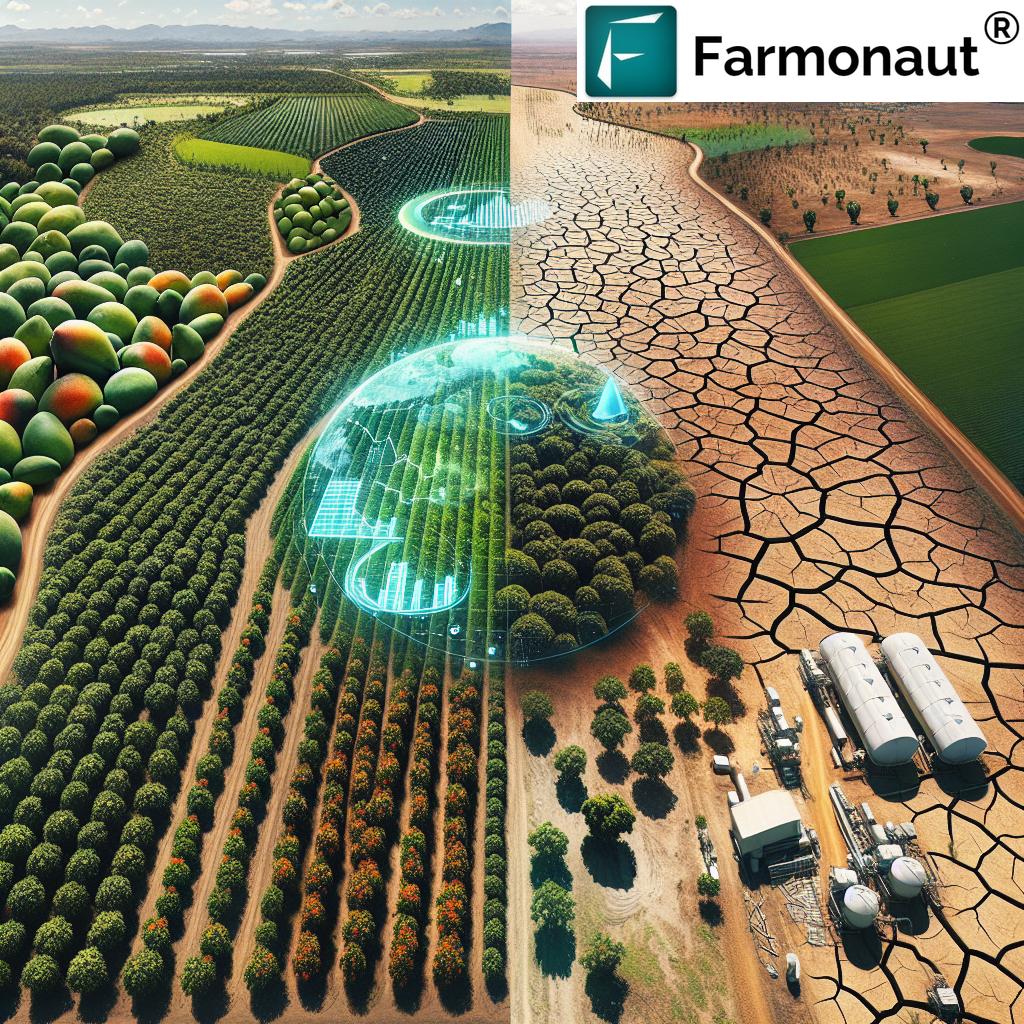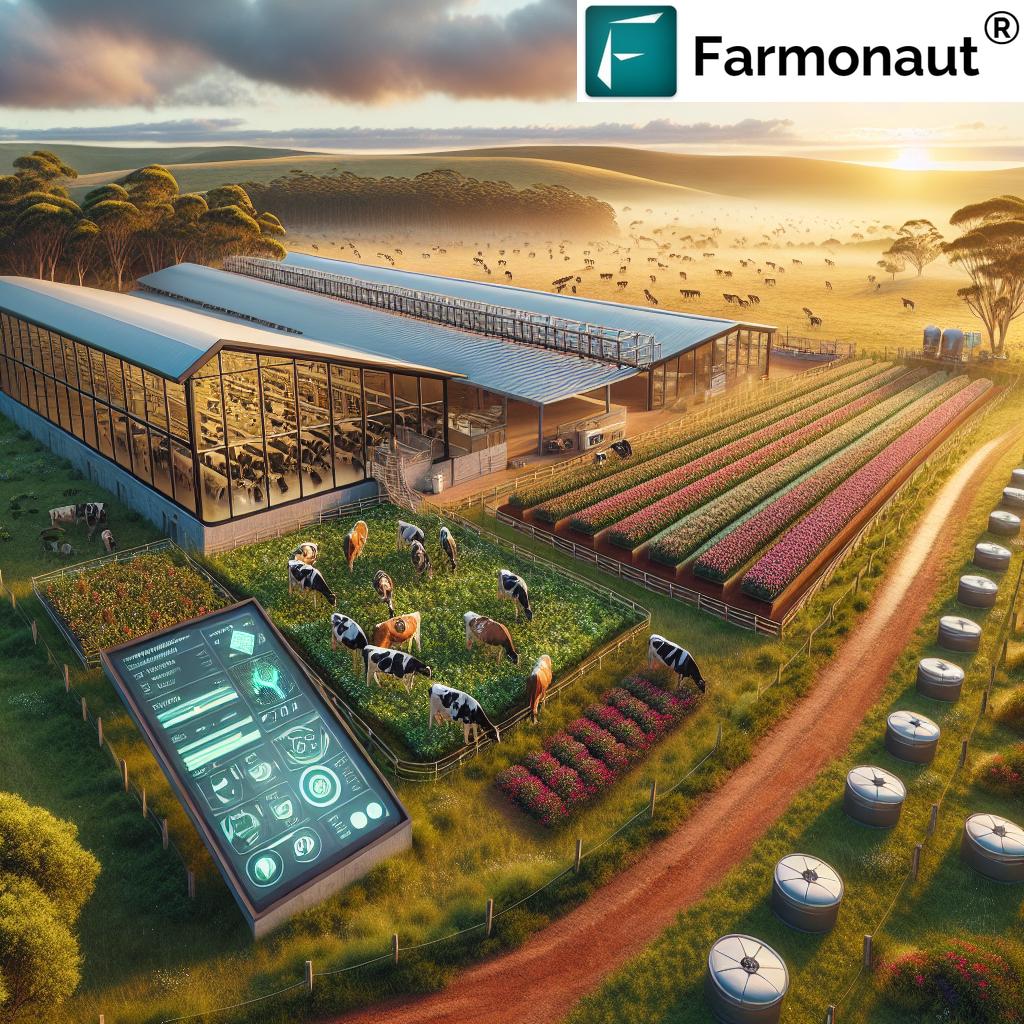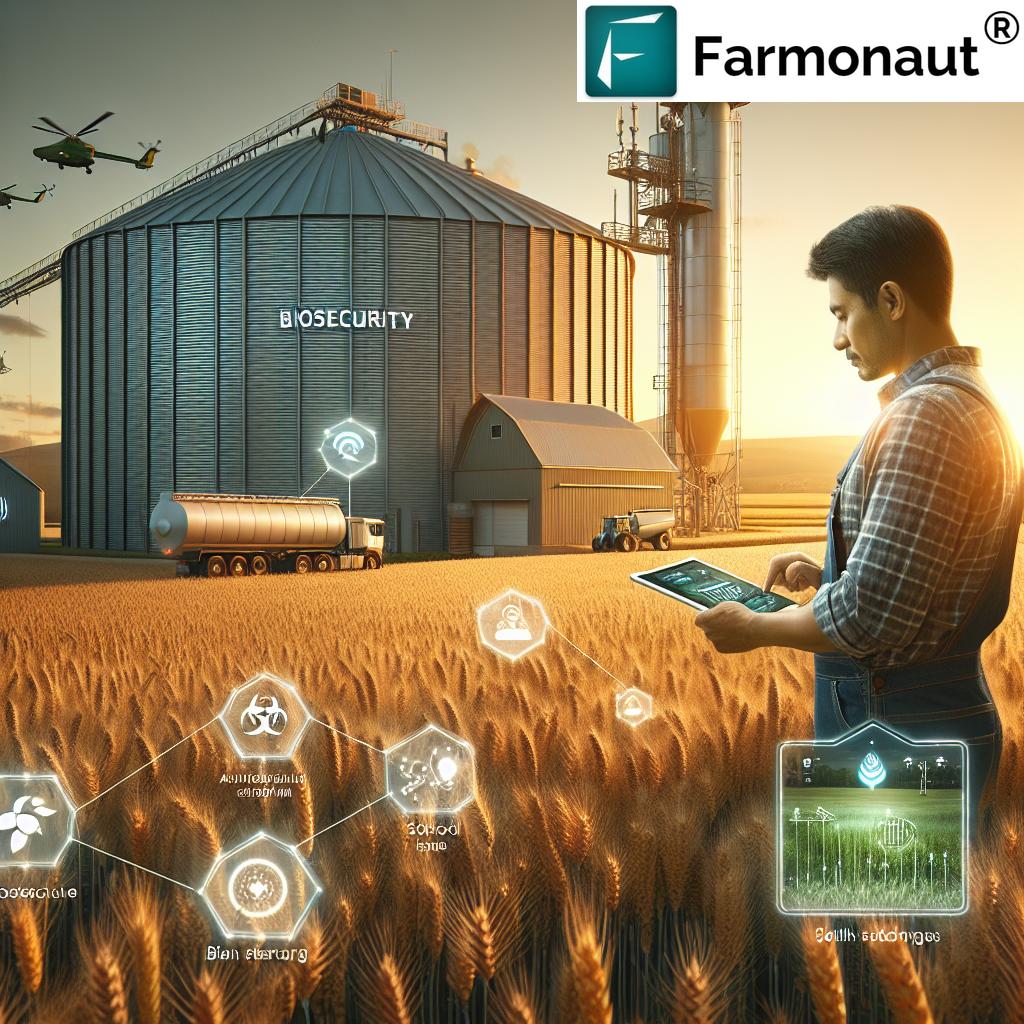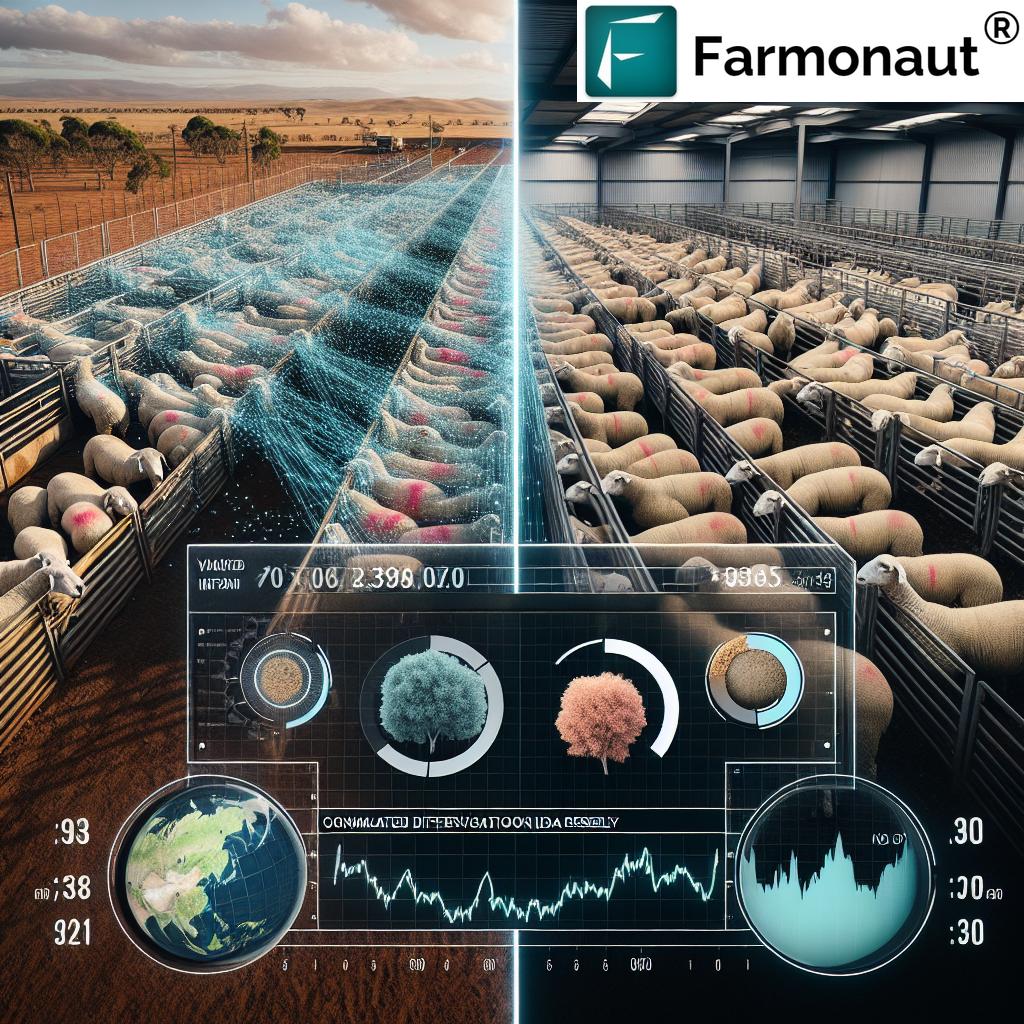Revolutionizing Australian Agriculture: Farmonaut’s Precision Technology for Sustainable Farming and Biosecurity
“Australia’s agricultural biosecurity sector employs over 5,000 professionals across diverse roles, from field officers to data analysts.”
Welcome to the future of Australian agriculture! In this comprehensive guide, we’ll explore the exciting career opportunities and innovative technologies shaping the landscape of sustainable farming and biosecurity in Australia. From precision agriculture to environmental protection, we’ll delve into the diverse roles and cutting-edge solutions that are transforming the industry.
The Evolving Landscape of Australian Agriculture
Australia’s agricultural sector is undergoing a remarkable transformation, driven by the need for sustainability, efficiency, and biosecurity. As climate change and global trade dynamics continue to pose challenges, the industry is embracing innovative technologies and practices to ensure food security and economic growth.
At the forefront of this revolution is Farmonaut, a pioneering agricultural technology company that’s making waves with its advanced satellite-based farm management solutions. By leveraging cutting-edge technology, Farmonaut is empowering farmers and agricultural professionals to make data-driven decisions and optimize their operations.
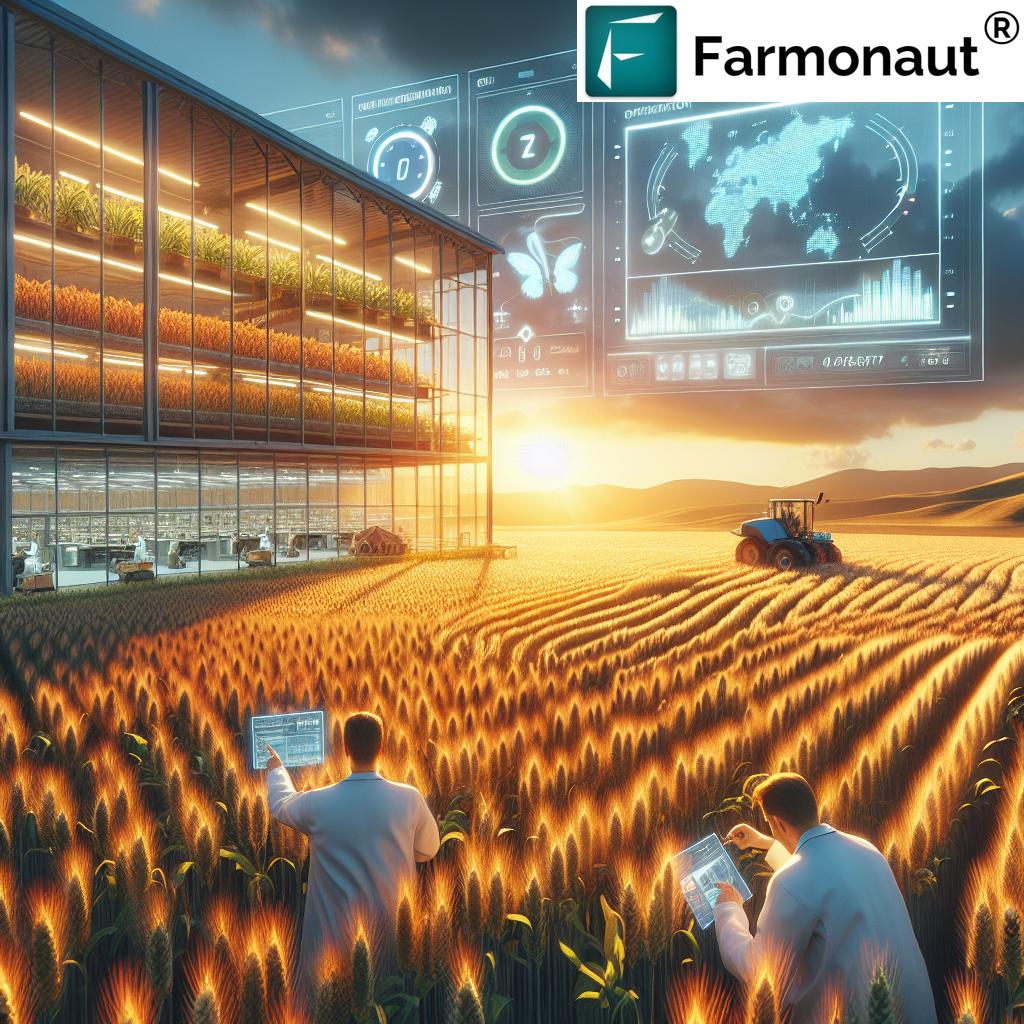
Precision Agriculture: The Future of Farming
Precision agriculture technology is revolutionizing the way we grow crops and manage resources. By harnessing the power of satellite imagery, artificial intelligence, and data analytics, farmers can now make informed decisions about every aspect of their operations.
- Crop health monitoring
- Soil moisture analysis
- Targeted irrigation
- Optimized fertilizer application
- Early pest and disease detection
Farmonaut’s advanced platform integrates these technologies, providing farmers with real-time insights and actionable recommendations. Through the  , users can access a wealth of data and tools to enhance their agricultural practices.
, users can access a wealth of data and tools to enhance their agricultural practices.
Biosecurity: Protecting Australia’s Agricultural Assets
Australia’s unique ecosystem and agricultural industry require robust biosecurity measures to safeguard against pests, diseases, and other threats. The Department of Agriculture, Fisheries and Forestry (DAFF) plays a crucial role in implementing and maintaining these protective measures.
Key areas of focus in agricultural biosecurity include:
- Quarantine procedures
- Pest and disease surveillance
- Risk assessment and management
- Emergency response planning
- International trade compliance
Professionals in this field work tirelessly to protect Australia’s agricultural resources, ensuring the safety and quality of products for both domestic consumption and export.
Career Opportunities in Agriculture and Biosecurity
The agricultural sector offers a wide range of rewarding career paths for individuals passionate about sustainable farming, environmental protection, and food security. Let’s explore some of the exciting roles available in this dynamic industry:
| Job Title | Key Responsibilities | Required Skills | Estimated Annual Salary Range (AUD) |
|---|---|---|---|
| Biosecurity Officer |
|
|
60,000 – 90,000 |
| Agricultural Data Analyst |
|
|
75,000 – 120,000 |
| Precision Agriculture Technician |
|
|
65,000 – 95,000 |
| Environmental Protection Specialist |
|
|
70,000 – 110,000 |
| Sustainable Farming Consultant |
|
|
80,000 – 130,000 |
These roles represent just a fraction of the diverse opportunities available in the Australian agricultural and biosecurity sectors. As the industry continues to evolve, new positions are emerging that combine traditional agricultural knowledge with cutting-edge technology and data analysis skills.
Farmonaut: Empowering Agricultural Innovation
At the heart of Australia’s agricultural revolution is Farmonaut, a company dedicated to making precision agriculture accessible and affordable for farmers across the country. By leveraging advanced satellite technology and artificial intelligence, Farmonaut provides invaluable tools for farm management and decision-making.
Key features of Farmonaut’s platform include:
- Real-time crop health monitoring
- AI-powered advisory system (Jeevn AI)
- Blockchain-based product traceability
- Resource and fleet management tools
- Carbon footprint tracking
These innovative solutions are helping Australian farmers increase productivity, reduce costs, and implement sustainable practices. For those interested in exploring Farmonaut’s offerings, the platform is available through various channels:
For developers and businesses looking to integrate Farmonaut’s technology into their own systems, the company also offers a comprehensive API with detailed developer documentation.
The Role of Remote Sensing in Modern Agriculture
“Precision agriculture technologies have increased crop yields by up to 15% while reducing water usage by 30% in Australian farms.”
Remote sensing technology is playing an increasingly crucial role in Australian agriculture. By utilizing satellite imagery and other forms of aerial observation, farmers and agricultural professionals can gain unprecedented insights into their land and crops.
Benefits of remote sensing in agriculture include:
- Early detection of crop stress and disease
- Accurate yield predictions
- Improved resource allocation
- Enhanced pest management
- Monitoring of environmental impacts
Farmonaut’s platform leverages advanced remote sensing techniques to provide farmers with actionable data and insights. This technology is not only improving farm productivity but also contributing to more sustainable and environmentally friendly agricultural practices.
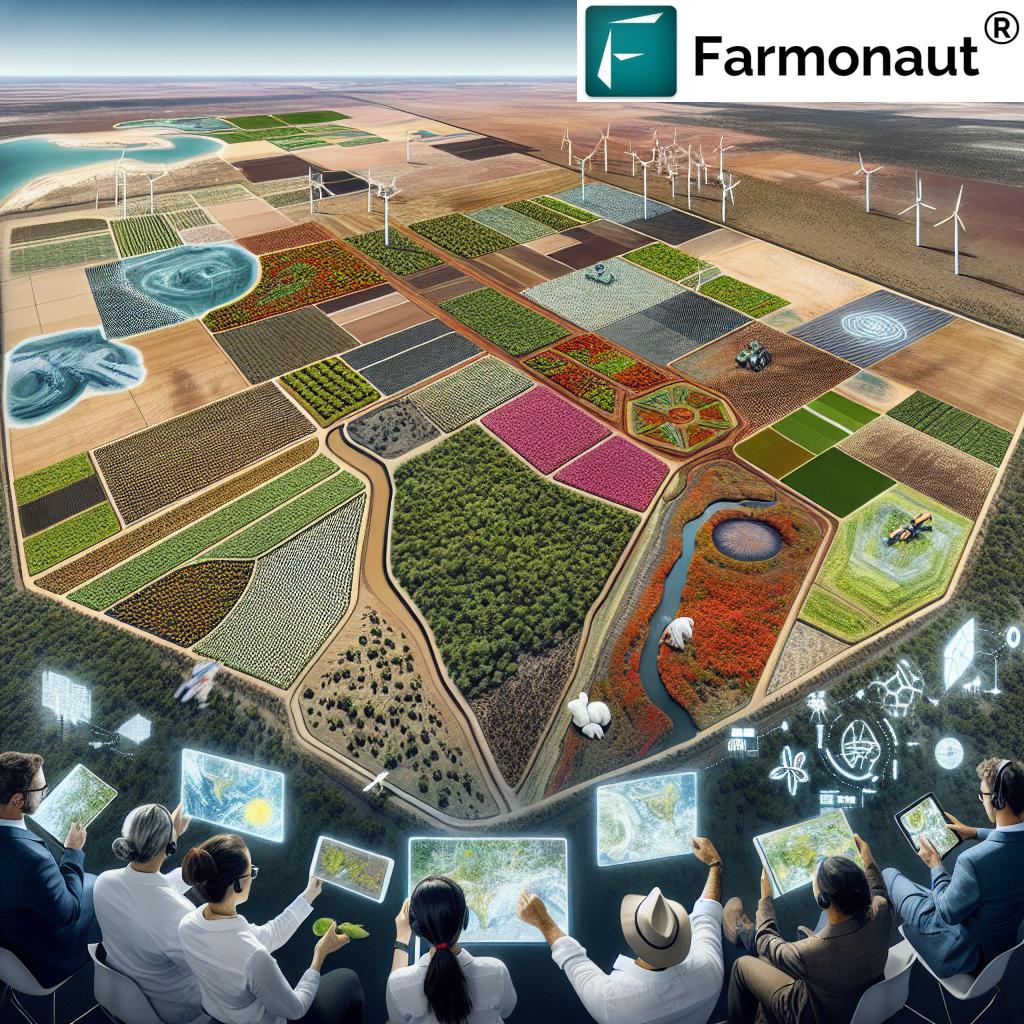
Climate-Smart Farming: Adapting to Environmental Challenges
As Australia faces increasing environmental pressures, including drought, bushfires, and changing weather patterns, the adoption of climate-smart farming practices has become essential. These innovative approaches aim to increase agricultural productivity while reducing greenhouse gas emissions and building resilience to climate change.
Key aspects of climate-smart farming include:
- Water-efficient irrigation systems
- Drought-resistant crop varieties
- Carbon sequestration techniques
- Integrated pest management
- Renewable energy adoption
Farmonaut’s platform supports climate-smart farming initiatives by providing farmers with the data and tools they need to make informed decisions about resource management and sustainable practices.
Agricultural Risk Management: Protecting Farmers and Food Security
Effective risk management is crucial for the long-term sustainability of Australia’s agricultural sector. From extreme weather events to market fluctuations, farmers face a wide range of challenges that can impact their livelihoods and the nation’s food security.
Key areas of agricultural risk management include:
- Crop insurance programs
- Diversification strategies
- Early warning systems for pests and diseases
- Market price monitoring and forecasting
- Supply chain resilience planning
Farmonaut’s advanced analytics and monitoring tools play a vital role in helping farmers and agricultural businesses assess and mitigate risks. By providing real-time data and predictive insights, the platform enables more informed decision-making and proactive risk management strategies.
The Future of Australian Agriculture: Innovation and Sustainability
As we look to the future, it’s clear that innovation and sustainability will continue to drive the evolution of Australian agriculture. From cutting-edge technologies like artificial intelligence and blockchain to sustainable farming practices that protect our environment, the industry is poised for exciting developments.
Key trends shaping the future of Australian agriculture include:
- Increased adoption of precision agriculture technologies
- Growing focus on sustainable and regenerative farming practices
- Development of climate-resilient crop varieties
- Integration of blockchain for supply chain transparency
- Expansion of vertical farming and controlled environment agriculture
Farmonaut is at the forefront of these innovations, continuously developing new tools and technologies to support Australian farmers and agricultural professionals in meeting the challenges of tomorrow.
Joining the Agricultural Revolution: Career Paths and Opportunities
For those interested in being part of Australia’s agricultural revolution, there are numerous pathways to enter the field. Whether you’re a recent graduate, a seasoned professional looking for a career change, or an entrepreneur with innovative ideas, the agricultural sector offers exciting opportunities for growth and impact.
Key steps to starting a career in agriculture and biosecurity:
- Pursue relevant education and training (e.g., agricultural science, environmental studies, data analytics)
- Gain hands-on experience through internships or volunteer work
- Network with industry professionals and join agricultural associations
- Stay informed about the latest technological advancements and industry trends
- Consider specialized certifications in areas like precision agriculture or biosecurity
With companies like Farmonaut driving innovation in the sector, there’s never been a better time to explore careers in Australian agriculture and biosecurity.
Farmonaut Subscription Options
For those interested in leveraging Farmonaut’s powerful agricultural technology, here are the available subscription options:
Frequently Asked Questions
Q: What qualifications do I need to work in agricultural biosecurity?
A: Qualifications vary depending on the specific role, but typically include a degree in agricultural science, environmental science, or a related field. Some positions may require additional certifications or specialized training in biosecurity protocols.
Q: How can precision agriculture technology benefit small-scale farmers?
A: Precision agriculture technologies, like those offered by Farmonaut, can help small-scale farmers optimize resource use, reduce costs, and increase yields. These tools provide valuable insights into crop health, soil conditions, and weather patterns, enabling more informed decision-making.
Q: What is the role of data analysis in modern agriculture?
A: Data analysis plays a crucial role in modern agriculture by helping farmers and agricultural professionals make data-driven decisions. It’s used for yield prediction, resource optimization, pest management, and identifying trends that can improve overall farm productivity and sustainability.
Q: How is climate change affecting Australian agriculture?
A: Climate change is impacting Australian agriculture through increased frequency and severity of droughts, changes in growing seasons, and shifts in pest and disease patterns. This has led to a greater focus on climate-smart farming practices and the development of more resilient crop varieties.
Q: What are some emerging technologies in agricultural biosecurity?
A: Emerging technologies in agricultural biosecurity include advanced sensors for early disease detection, AI-powered surveillance systems, blockchain for supply chain traceability, and gene editing for developing disease-resistant crops.
Conclusion: Embracing the Future of Australian Agriculture
As we’ve explored throughout this article, the Australian agricultural sector is undergoing a remarkable transformation, driven by innovative technologies, sustainable practices, and a commitment to biosecurity. From precision farming to cutting-edge risk management strategies, the industry offers a wealth of exciting opportunities for professionals passionate about shaping the future of food production and environmental stewardship.
Companies like Farmonaut are at the forefront of this revolution, providing farmers and agricultural professionals with the tools and insights they need to thrive in an increasingly complex and challenging landscape. By embracing these innovations and continuing to invest in research and development, Australia is well-positioned to maintain its status as a global leader in sustainable and efficient agriculture.
Whether you’re considering a career in agricultural biosecurity, precision farming, or environmental protection, the future is bright for those willing to combine traditional agricultural knowledge with cutting-edge technology and data-driven insights. As we face the challenges of climate change, population growth, and resource scarcity, the importance of innovative and sustainable agricultural practices has never been greater.
Join us in revolutionizing Australian agriculture and contributing to a more sustainable, secure, and prosperous future for all.





